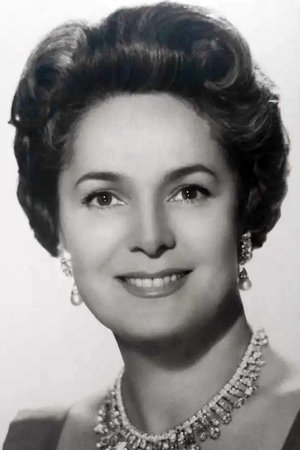Biography:

Begum Om Habibeh Aga Khan (15 February 1906 – 1 July 2000) was the fourth and last wife of Sir Sultan Muhammad Shah, Aga Khan III. The couple married thirteen months after the Aga Khan III and his third wife were divorced by mutual consent. The Begum was well known for her generosity towards and compassion for the impoverished and the elderly.
Her Egypt-based Om Habibeh Foundation worked towards the alleviation of poverty and the improvement of quality of life in the area surrounding Aswan, Egypt, and in Le Cannet she established a retirement home. She was particularly interested in women's issues and, an accomplished artist and sculptor, she was also interested in the arts including classical music, ballet, and the opera. The Begum died at the age of 94 in Le Cannet and was buried in the mausoleum of her husband at Aswan.
She was born Yvonne Blanche Labrousse in the town of Sète, France on 15 February 1906. She was called Yvette. She was the daughter of Adrien Labrousse, a tramway conductor, and Marie Brouet, a seamstress. Her family soon moved to Cannes and later on to Lyon where the young Yvette spent most of her childhood. In 1929, at the age of twenty-four, she became Miss Lyon and one year later she was named Miss France. As a beauty queen and a representative of France, she traveled to many countries around the world. She found herself particularly taken by Egypt and, in the late 1930s, she moved to Cairo and adopted the faith of Islam.
Yvette Labrousse met Aga Khan III in Egypt and they married on 9 October 1944 in Switzerland. The new Begum assumed the name of Om Habibeh after one of the Prophet Muhammad's wives. Her husband playfully nicknamed her "Yaky", which was composed from the initials of "Yvette", "Aga" and "Khan". The Begum designed their villa at Le Cannet near Cannes and it was named "Yakymour", combining her nickname "Yaky" and "Amour", the French word for love.
In 1954, Om Habibeh was given the title of Mata Salamat, which literally means serene or peaceful mother. Of his marriage to Begum Om Habibeh, the Aga Khan III wrote in his memoirs, "I can only say that if a perfectly happy marriage be one in which there is a genuine and complete union and understanding, on the spiritual, mental, and emotional planes, ours is such." Shortly before his death, the Aga Khan III chose a location on the West Bank of the Nile as his final resting place.
The location was highly symbolic, for centuries earlier the Aga Khan's ancestors had founded the Fatimid dynasty with its capital in Cairo. The Fatimids represented one of the apogees of Muslim culture, being patrons of the arts, architecture, literature, pluralism and scientific endeavors, all fields that were equally dear to the Aga Khan III and Om Habibeh. Immediately after her husband's death, she oversaw the building of a mausoleum, a task that took 16 months and the help of architect Farid El-Shafie and contractor Hassan Dorra. ...
Source: Article "Begum Om Habibeh Aga Khan" from Wikipedia in English, licensed under CC-BY-SA 3.0.




